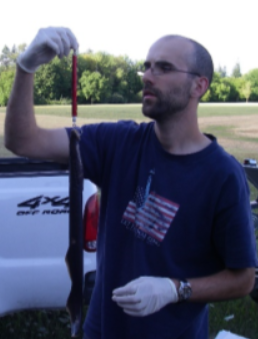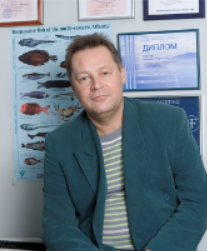Редакция журнала «Вопросы ихтиологии» начинает подготовку специального выпуска журнала на английском языке. Дата выхода номера — 2022 год. Статьи можно подавать на русском и английском языках. Подробная информация ниже.
Primitive fishes: scientific, cultural, and commercial importance
Special Issue description
Non-teleost fishes that are the living representatives of ancient lineages are often considered to be ‘primitive’ or ‘living fossils’. These terms are not entirely accurate in terms of vertebrate evolution. According to modern concepts, primitive fishes include hagfishes (Myxini), lampreys (Petromyzontiformes), sharks and skates/rays (Elasmobranchii), ratfishes/chimaeras (Holocephali), coelacanths (Coelacanthi), lungfishes and tetrapods (Dipneusti), bichirs/reedfishes (Cladistii), sturgeons (Acipenseridae) and paddlefishes (Polyodontidae), gars (Lepisosteidae), bowfins (Amiidae), and others. This Special Issue aims to provide an overview of the current knowledge of primitive fishes with respect to:
Ø Evolution, phylogeny, phylogeography, and molecular biology
Ø Taxonomy and zoogeography
Ø Ecology and life history
Ø Harvesting, stock assessment, and fisheries management
Ø Physiology
Ø Artificial propagation and aquaculture
Ø Conservation and stock rebuilding
Expected authors
Ichthyologists and interdisciplinary scientists interested in evolution, phylogeny, taxonomy, historical zoology, biogeography, phylogeography, ecology, applications of new analytical technologies, molecular biology, stock assessment, fisheries management, artificial propagation, aquaculture and conservation.
Keywords
· primitive fishes
· taxonomy
· zoogeography
· phylogeny
· molecular biology
· evolution
· life history
· physiology
· stock assessment
· fisheries
· aquaculture
· ethnozoology
· conservation
· management
Manuscript submission information
Manuscripts should be submitted online at https://publish.sciencejournals.ru/login by registering and logging in to this website. Once you are registered, you can access the submission form. Manuscripts can be submitted until the deadline (1 May, 2022). Research articles, review articles and short communications are invited.
Submitted manuscripts should not have been published previously, nor be under consideration for publication elsewhere. All manuscripts are thoroughly refereed through a single-blind peer-review process. A guide for authors and other relevant information for submission of manuscripts are available on the Instructions for Authors page (https://www.pleiades.online/ru/journal/ichth/authors-instructions/).
Journal information
Journal of Ichthyology is an international, peer-reviewed journal published in collaboration with the Russian Academy of Sciences. It covers original studies in fish taxonomy, evolution, molecular biology, morphology, species diversity, zoological geography, genetics, physiology, ecology, behavior, reproduction, embryology, invasions, and protection. Some problems of applied ichthyology are also covered. The journal welcomes manuscripts from all countries in the English or Russian language. The journal is published by Pleiades Publishing, Ltd. and is distributed by Springer. Journal metrics: Web of Science Impact factor (2020) 0.603 (Q4), Scopus SJR (2020) 0.354 (Q2).
Types of papers
Original research papers, reviews and short communications are welcomed.
Submission deadline
1 May, 2022
Publication mode
All accepted papers will be published “Online First“. This means the immediate online publication of all accepted papers as soon as the authors have returned the corrected proofs.
Publication fee
All papers submitted to this Special Issue are published free of charge.
Pre-submission
Anyone who is interested in submitting a paper to this Special Issue, please send in advance the following information to orlov@vniro.ru:
Tentative title;
List of potential co-authors with affiliations;
Short description of the paper (abstract);
Approximate number of pages;
Possible date of submission.
Special Issue editors
Dr. Benjamin Clemens, Oregon Department of Fish and Wildlife, Corvallis, USA (lampreys)
Dr. Georgii Ruban, Institute of Ecology and Evolution, Russian Academy of Sciences, Moscow, Russia (sturgeons and paddlefishes)
Dr. Bernard Seret, Consultant en Ichtyologie marine, Paris, France (chondichthyans)
Dr. Alexei Orlov, Shirshov Institute of Oceanology, Russian Academy of Sciences, Moscow, Russia (other primitive fishes)
Short Biographies of Special Issue editors

Dr. Benjamin Clemens is currently the Statewide Lamprey Coordinator for the Oregon Department of Fish and Wildlife (ODFW). In this role he works at the nexus of research, policy, and management of lampreys. During 1996-2002, he attended Central Michigan University and the University of Guelph, specialising in Biology, Zoology, and Fisheries Science. He earned his Doctorate in Fisheries Science from Oregon State University (2006-2011). Dr. Clemens worked as a fish biologist for ODFW in various positions of increasing responsibility during 2002-2004 and 2011 to present. He also worked as a Project Leader at Oregon State University from 2004-2005 and 2009-2011. He has led the administration, supervision, and research of several different field and laboratory projects aimed at understanding the biology of various fishes. He specializes in fish anatomy, physiology, migration, behavior, and conservation biology. Ben has authored or co-authored 86 publications, including 35 peer-reviewed papers in 21 different journals and books. He has given 126 presentations at various scientific seminars and colloquia and 28 invited teaching lectures. Dr. Clemens has organized and convened 15 different seminars, sessions, and groups at various scientific venues. He served as the President for the Oregon Chapter of the American Fisheries Society, chaired subgroups of the Lamprey Technical Workgroup, served as a peer reviewer for 19 different scientific journals and as an Associate Editor for the North American Journal of Fisheries Management. He is a member of the American Fisheries Society.

Dr. Georgii Ruban currently is a chief researcher of the Laboratory of lower vertebrate ecology in A.N. Severtsov Institute of Ecology and Evolution of the Russian Academy of Sciences (IPEE RAS, Moscow, Russia). During 1968-1973, he attended the Department of Ichthyology of Biological Faculty of
Moscow State University and during 1973-1976 completed postgraduate course at this department. After leaving the university, he began work as a researcher of Interdepartmental Ichthyological Commission of the USSR Ministry of Fisheries (Moscow, Russia), where he remained until beginning his career at IPEE RAS in 1980. During over 30 years at Moscow State University and IPEE RAS, he gained a wealth of field experience participating in expeditions to Kamchatka Peninsula, Volga-Caspian Region, Uzbekistan, Baltic Region and basins of Siberian rivers Ob, Lena, Vilyui, Aldan, Olekma, Yana, Indigirka, and Kolyma. He is the author of over 120 publications in peer-reviewed journals and 7 monographs. His scientific interests include distribution, ecology, general biology, reproductive biology, species and population structure and stock assessment of sturgeons. He was or currently is a member of WSCS (World Sturgeon Conservation Society, Hamburg, Germany) Board of Directors and Foundation member and serves as an editor for scientific journals “Journal of Applied Ichthyology” and “Problems of Fisheries”.
 Ocean biologist by education, Bernard Séret is an ichthyologist specialized in the study of the chondrichthyan fishes (sharks, rays and chimaeras). He worked at the “Institut de Recherche pour le Développement” (IRD) for almost 40 years, and had been hosted by the “Muséum national d’Histoire naturelle, Paris” for about 20 years. Retired since 2015, he continues his scientific work and carries out consultancies. His research work concerns the biodiversity, the fisheries and the conservation of the Chondrichthyan fishes. He sojourned and undertook several scientific missions overseas and took part in many exploratory cruises in the Atlantic, Southern Ocean and South Pacific. He is author/co-author of about 200 papers (cf. https://www.researchgate.net/profile/Bernard-Seret), with more than 120 on Chondrichthyes, including the description of 56 new species of sharks, rays and chimaeras, chapters on Batoids in the FAO catalogue for ECA, and contributions to scientific books, e.g. Rays of the World book, the Natural History of Madagascar, and The Coastal Fishes Fishes of South-western Indian Ocean, along with several popular books (cf https://www.amazon.fr/Bernard-Seret/e/B001K7HAPA%3Fref=dbs_a_mng_rwt_scns_share).
Ocean biologist by education, Bernard Séret is an ichthyologist specialized in the study of the chondrichthyan fishes (sharks, rays and chimaeras). He worked at the “Institut de Recherche pour le Développement” (IRD) for almost 40 years, and had been hosted by the “Muséum national d’Histoire naturelle, Paris” for about 20 years. Retired since 2015, he continues his scientific work and carries out consultancies. His research work concerns the biodiversity, the fisheries and the conservation of the Chondrichthyan fishes. He sojourned and undertook several scientific missions overseas and took part in many exploratory cruises in the Atlantic, Southern Ocean and South Pacific. He is author/co-author of about 200 papers (cf. https://www.researchgate.net/profile/Bernard-Seret), with more than 120 on Chondrichthyes, including the description of 56 new species of sharks, rays and chimaeras, chapters on Batoids in the FAO catalogue for ECA, and contributions to scientific books, e.g. Rays of the World book, the Natural History of Madagascar, and The Coastal Fishes Fishes of South-western Indian Ocean, along with several popular books (cf https://www.amazon.fr/Bernard-Seret/e/B001K7HAPA%3Fref=dbs_a_mng_rwt_scns_share).
His interest in shark fisheries includes: analysis of fishery data of French shark fisheries in European waters (he was the French representative at the ICES-WGEF for years), analysis of shark by-catches of French tuna fisheries (in collaboration with IRD fishery biologists), involvement in the programme MADE (measures to mitigate adverse impacts of fisheries targeting large pelagic fishes in the open ocean), training of fishery observers and officers to identification of sharks and rays. His interest in shark conservation includes assessments made for both French and European bodies, and international organisations. He provided scientific advices on proposals of listing shark
and ray species (CITES, IUCN Red List, OSPAR, etc.) and has been involved in the elaboration of several plans of actions for the management and the conservation of shark populations. He was co-editor of Cybium for a decade, and edited several proceedings of symposiums (e.g. meetings of the European Elasmobranch Association), and he has been reviewing numerous MS on chondrichthyan fishes (cf. https://publons.com/researcher/3001118/bernard-seret/ ). Seven new species of fishes have been dedicated to Bernard Séret.

Dr. Alexei Orlov currently is a head of the Laboratory of Oceanic Ichthyofauna in P.P. Shirshov Institute of Oceanology of the Russian Academy of Sciences (IO RAS, Moscow, Russia). He is also affiliated with A.N. Severtsov Institute of Ecology and Evolution of the Russian Academy of Sciences (IPEE RAS, Moscow, Russia), Russian Federal Research Institute of Fisheries and Oceanography (VNIRO, Moscow, Russia), Tomsk State University (TSU, Tomsk, Russia), Dagestan State University (DSU, Makhachkala, Russia), and Caspian Institute of Biological Resources of Dagestan Federal Research Center of the Russian Academy of Sciences (CIBR DFRC RAS, Makhachkala, Russia).
During 1977-1982, he attended the Faculty of Fisheries, Astrakhan Technical University, specialising in Ichthyology and Pisciculture. After leaving the university, he began work as an engineer for the Pacific Department of Fishery Survey and Research Fleet (TURNIF, Vladivostok, Russia), where he remained until beginning his career at VNIRO in 1986. During over 30 years at VNIRO, he gained a wealth of field experience. He was or currently is a member of working groups and/or Russian representative in various RFMOs (NEAFC, NAFO, ICES, CCAMLR, PICES). He actively participated in the International Scientific Project “MAR-ECO” (Census of Marine Life). He attended more than 50 International scientific events and is the author of over 200 publications in peer-reviewed journals (https://www.researchgate.net/profile/A-Orlov-2). His scientific interests include distribution, stock assessment, ecology, general biology, zoogeography and taxonomy of bathydemersal and mid-water fishes of the North Pacific and North Atlantic oceans. He is a member of 8 professional societies and serves as an editor for scientific journals “Journal of Ichthyology”, “Trudy VNIRO” and “Acta Ichthyologica et Piscatoria”.
